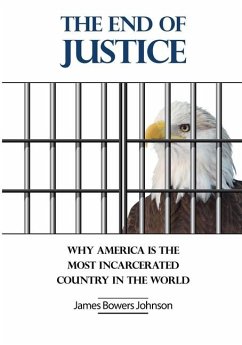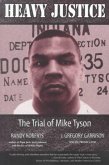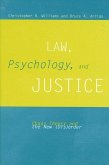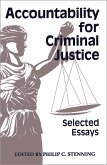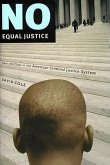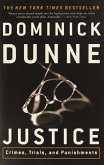With only 5% of the global population, America has close to 25% of the prison population. America is the most incarcerated country in the world. Why? Americans are ignorant, apathetic, and fearful, and, thus, subjected to the institutional arrogance of governing authorities.This book dissects the legal system into ten components and uses a scoring system known as "The Four Corners of Justice" that qualifies and quantifies how and why the innocent are unjustly convicted. Moreover, the author offers viable solutions to mitigate the institutional arrogance prevalent at all levels of government, while encouraging Americans to eradicate their ignorance, apathy and fear. Americans must be in a position to know, engage and courageously employ the inherent power they possess. The Supreme Court even stated that the people are sovereign, that their power is the only source for the limited authority granted to state and federal government.Since the people are ultimately at fault for the over-criminalizing of America, we must hold ourselves and the government accountable to the constraints of proper and limited constitutional authority. If not, we are a vanquished people and America is a conquered country.In 2012, the author, James Johnson, confronted the unimaginable. He experienced circumstances that were quite stark and wholly inconsistent with expected norms of life and basic civility. Johnson's plight defied reality to the point of disbelief. He knew that if he could not believe such dynamics, others would not. For we expect that certain principles - even if only undefined and unspoken standards of treatment and justice - prevailed among men, especially as applied by governing authorities. Johnson now knew that these fundamental precepts were a lie.As a Distinguished Military Graduate of the Virginia Military Institute, a former United States Army Military Intelligence officer, husband and father, one who never committed a crime, who never violated anyone's life, liberty or property, he was the target of a raid by a federal SWAT team at a public restaurant in Virginia. Some fifteen armed federal agents barreled through the doors with weapons drawn and zeroed in on Johnson as he dined with his sister and 4 year old niece. With red lasers targeted on his torso, agents tackled Johnson to the ground and then handcuffed and indignantly hauled him away. Transported to a county jail for the night, the guards shoved him into a cage the size of a typical bathroom. With three other men caged inside and with only two bunks, Johnson slept on the concrete floor. The next day he was taken to another jail and placed in a cold concrete cell with a steel bunk and was denied a mattress or blankets.In the morning, clothed in a white and orange striped jumpsuit and shackled and chained, Johnson was taken to a federal court. At the appointed time, he shuffled six inches with each step as the U.S. Marshals positioned him at the defense table. Once the proceeding commenced, after Johnson's request, the judge refused to compel the federal government to identify a victim. It was then that Johnson challenged federal jurisdiction. This act precipitated the unthinkable.Transported to a third jail, Johnson was placed unceremoniously into solitary confinement - isolation - with murderers who were serving one or multiple life sentences. Johnson remained there for the next 55 days.Given these events, one must ask: What was Johnson's alleged crime? The answer... he failed to sign a piece of paper. After a criminal trial, Johnson was imprisoned for 4 years for a crime he did not commit.The End of Justice includes Johnson's story and those of other innocent men trapped within a judicial system that preys upon the ignorant, apathetic and fearful. This is must reading for any American who thinks he or she lives in a country that is both free and just.

